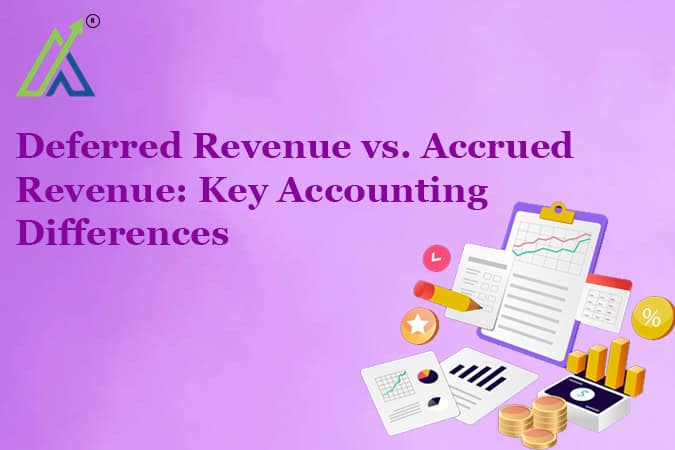Deferred income and accrued income are two key accounting concepts that determine how businesses report their earnings. While deferred income is paid before products or services are consumed, accumulated income is money generated but not yet received. Accurate financial reporting, accounting standard compliance, and effective cash flow management all rely on understanding of these concepts. This ensures that businesses comply with the law, maintain transparency, and avoid tax issues.
What is accrued revenue?
Accrued revenue is income a company generates but has not yet been paid for. Usually, accrued income arises when goods or services are given or completed before payment is received.
Accrued income appears on the balance sheet as an asset—more accurately as a receivable—indicating that the company is entitled to payment for given goods or services. As soon as the company is paid, the realized income is cash; its financial records are updated suitably.
Examples of Accrued Revenue
- Professional Services – In December a consulting company offers advise services; in January it bills the customer.
- Interest Income – A bank earns interest on a loan but does not receive payment until the next quarter.
- Utility Companies – Before billing, electricity companies accrue income then bill consumers after use.
What is deferred revenue?
Deferred revenue, often known as unearned income, is money received by a company for goods or services not yet delivered or completed.
Paying a firm in advance causes the money to display under deferred income under liabilities on the balance sheet. This shows how dedicated the business is to offer future goods or services. As the company satisfies its supply-chain promise, the deferred money is gradually dropped and shown on the income statement as actual revenue.
Examples of Deferred Revenue
- Subscription Services – Although an annual membership price is paid upfront, a magazine publisher delivers the publications over a period of time.
- Advance Payments for Goods – Before ever delivering the finished item, a manufacturing business gets an order deposit.
- Software Licenses – A software firm sells a one-year license but recognizes revenue incrementally over the contract duration.
Difference between Deferred Revenue and Accrued Revenue
Feature | Deferred Revenue | Accrued Revenue |
Definition | Revenue received before delivering goods/services | Revenue earned but not yet received |
Accounting Treatment | Recorded as a liability initially | Recorded as an asset under accounts receivable |
Impact on Financial Statements | Increases liabilities until earned | Increases assets until payment is collected |
Examples | Subscription fees, advance payments, prepaid rent | Consulting services, interest income, postpaid utilities |
Recognition Timing | Recognized over time as goods/services are provided | Recognized when earned, even if payment is pending |
Why Understanding These Concepts is Important?
Maintaining financial accuracy, compliance, and general corporate health depends on a grasp of these ideas. Here’s the rationale:
Accurate Financial Reporting – Proper recognition of Deferred Revenue and Accrued Revenue ensures that financial statements reflect a company’s actual financial position.
Compliance with Accounting Standards – Using IFRS and GAAP’s revenue recognition guidelines helps you avoid legal and regulatory problems.
Effective Cash Flow Management – Differentiating between cash received and revenue earned helps businesses manage their finances efficiently.
Investor and Stakeholder Confidence – Transparent financial statements increase investor trust and provide a clearer picture of business health.
Tax Implications – Correct categorization might result in tax fines or missed deductions as taxable income depends on recognized income.
Challenges in Managing Deferred and Accrued Revenue
Despite their significance, companies can struggle to manage these revenue sources:
- Complexity in Tracking – Big companies with several sources of income might find it difficult to precisely track postponed and accumulated income.
- Accounting Software Limitations – Not all program solutions effectively separate and automate income recognition.
- Regulatory Changes – Standard changes in financial reporting criteria, including IFRS 15, need for constant adaption to follow rules.
- Audit and Compliance Risks – Inaccurate identification might lead to financial misstatements, therefore influencing audits and compliance evaluations.
The Role of Accounting Software in Revenue Recognition
Modern accounting systems automate journal entries, financial statement generation, and compliance monitoring to facilitate the management of deferred income and accumulated revenue. Advanced solutions guarantee that income recognition aligns with contract criteria and delivery timelines by interacting with client invoicing systems.
Questions to understand your ability
Q1.) What’s the deal with accrued revenue?
a) You get paid before doing the work.
b) You earn it, but you haven’t seen a penny yet.
c) You make money only after delivering the goods.
d) It’s basically an expense, not revenue.
Q2.) When you’ve got deferred revenue, where does it show up on the balance sheet?
a) As cash sitting in your pocket.
b) As a liability because you owe the goods/services.
c) Under “prepaid expenses” as a future expense.
d) Straight-up as a revenue gain.
Q3.)Which of the following screams “accrued revenue” in action?
a) You’re paid upfront for a one-year magazine subscription.
b) You get a down payment for a custom product.
c) The bank earns interest but hasn’t seen the money yet.
d) You sell goods before the customer hands over cash.
Q4.) When dealing with deferred revenue, how does it mess with your financial statements?
a) It boosts your assets until the cash hits.
b) It raises your liabilities until the service is provided.
c) It increases your equity immediately.
d) It slashes the cost of goods sold.
Q5.) Why should you even care about deferred and accrued revenue?
a) To help you with your tax returns.
b) To manage cash flow and keep financials in check.
c) To follow marketing trends.
d) To lower costs on your balance sheet.
Conclusion
In financial accounting, both deferred and accrued revenue are somewhat important as they affect corporate decisions, taxes, and financial statements. Accrued Revenue accounts for earnings still to be earned; Deferred Revenue describes pre-earned payments. Good control of this income guarantees correct financial reporting, regulatory compliance, and efficient cash flow management. Using accounting software allows companies to simplify income recognition procedures, therefore lowering mistakes and improving financial openness.
FAQ's
It’s money earned but not yet received. A business has done the work or delivered goods, but the payment is still pending.
Sure! Think of a consultant who bills a client next month after working this month, or a bank earning interest but getting paid later.
It’s cash a business gets upfront for services/products it hasn’t delivered yet. Until the delivery happens, it’s a liability.
Once the company actually delivers what was promised, the money turns into real income.
Deferred = Cash received before delivery (liability). Accrued = Earned but not yet received (asset). Simple.
Accurate financial reports, tax savings, and avoiding legal messes. It’s key for understanding a company’s true financial health.
Tracking it gets tricky, software can’t always handle it, rules change, and audits can get messy if not handled right.
It automates tracking, keeps things organized, and ensures revenue is recognized the right way. Saves a lot of hassle.





